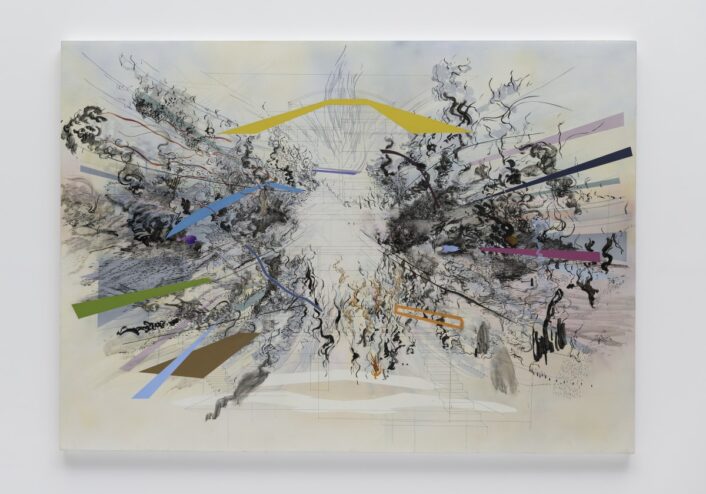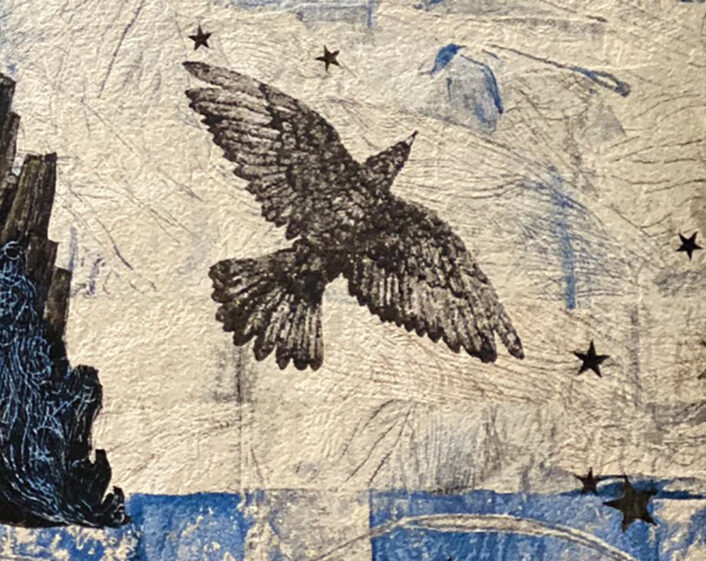Fine Art
Tatiana Trouvé
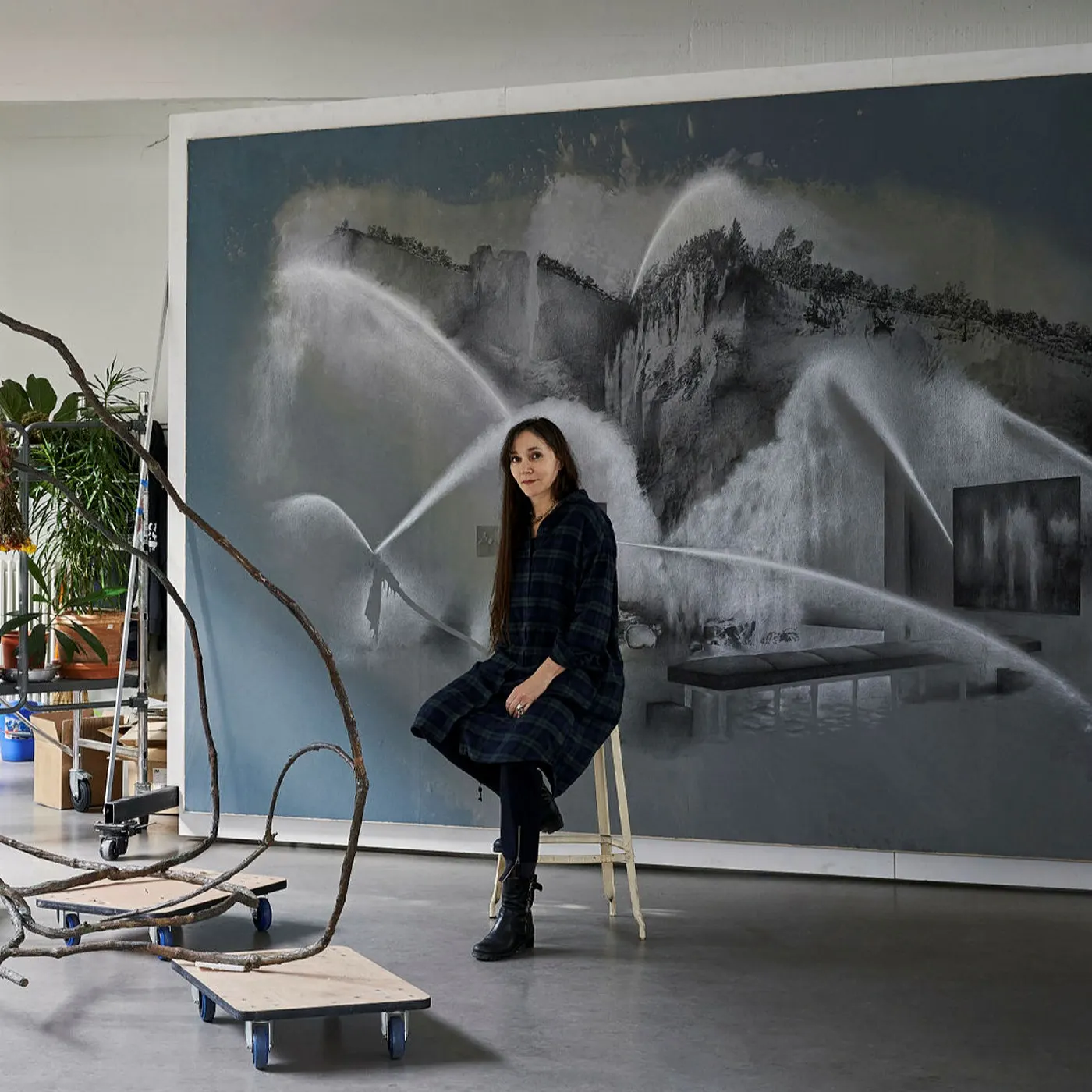
Trouvé at her studio in Montreuil, France.
Image courtesy of: Financial Times, photographed by: Thomas Lanne
Tatiana Trouvé is an artist that was born in Calabria, Italy and grew up in Dakar, Senegal. If that wasn’t inspirational enough, Trouvé studied at Villa Arson in Nice, France and then participated at Des Ateliers in Holland. In her various mediums: large-scale drawings, cast and carved sculptures, and site-specific installations, (courtesy of Gagosian) “Trouvé assesses the relationship between memory and material, pitting the ceaseless flow of time against the remarkable endurance of common objects.”
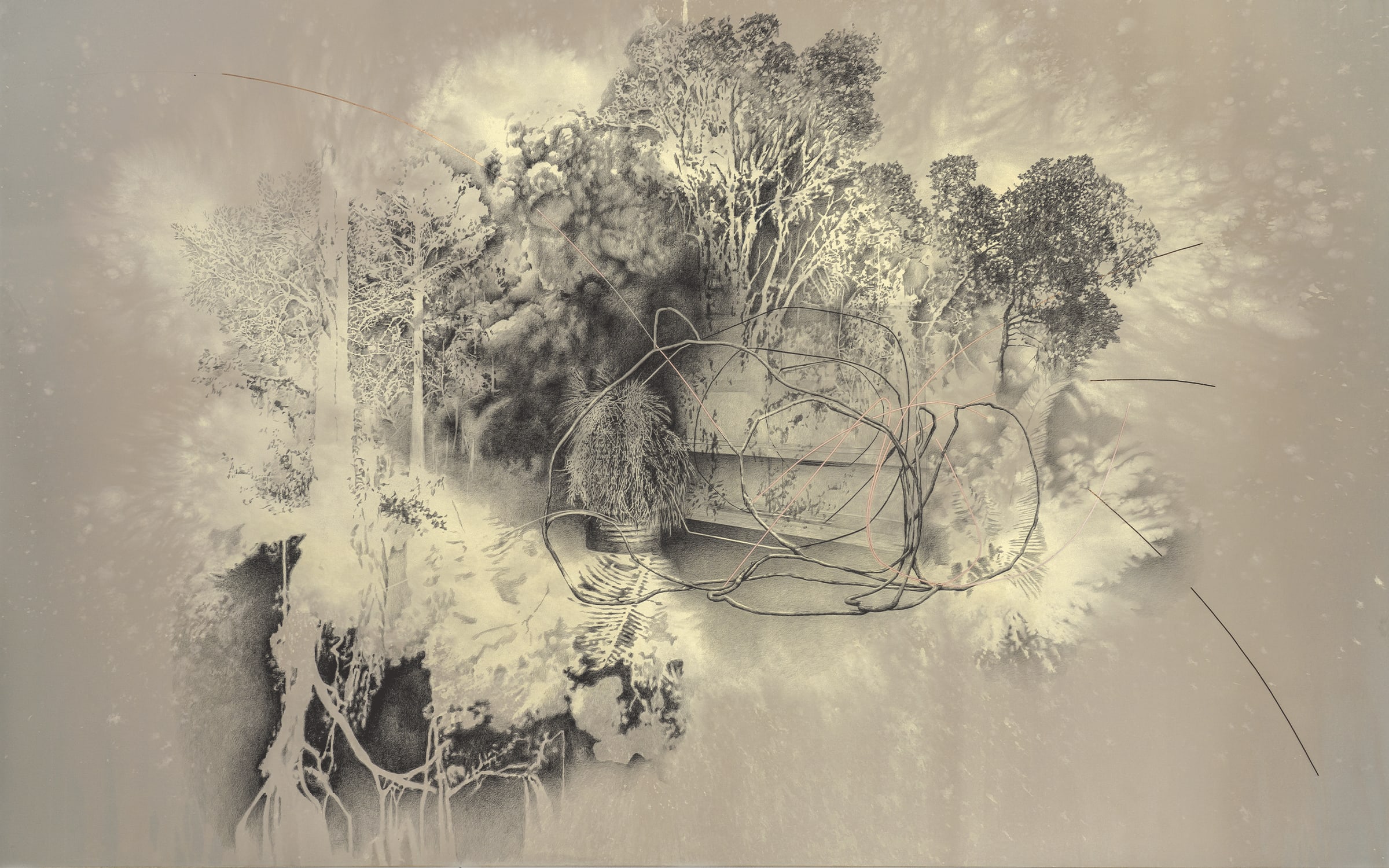
“Il mondo delle voci,” from the series ‘Les Dessouvenus’, 2022.
Dimensions are: 102″ x 157.5″
Image courtesy of: Art Basel, photographed by: Florian Kleinefenn
Last year was especially fruitful for Trouvé with two important exhibitions in France. Displaying at Centre Pompidou and Gagosian in Paris, the theme of disorientation is essential. Along with disorientation, comes doubt… and doubt plays a big part in many artists’ careers; Trouvé among them.
Courtesy of Numero’s interview with the artist, as conducted by the curator of the Pompidou show, Jean-Pierre Criqui, Trouvé said, “Had I been certain all throughout my career, I think I’d have only made one piece. But what interests me most about disorientation is that it allows us to perceive anew. If you get lost on a walk and are disoriented, you immediately become more attentive to what’s around you. Things reveal themselves differently. Perception requires a form of concentration and disorientation.”
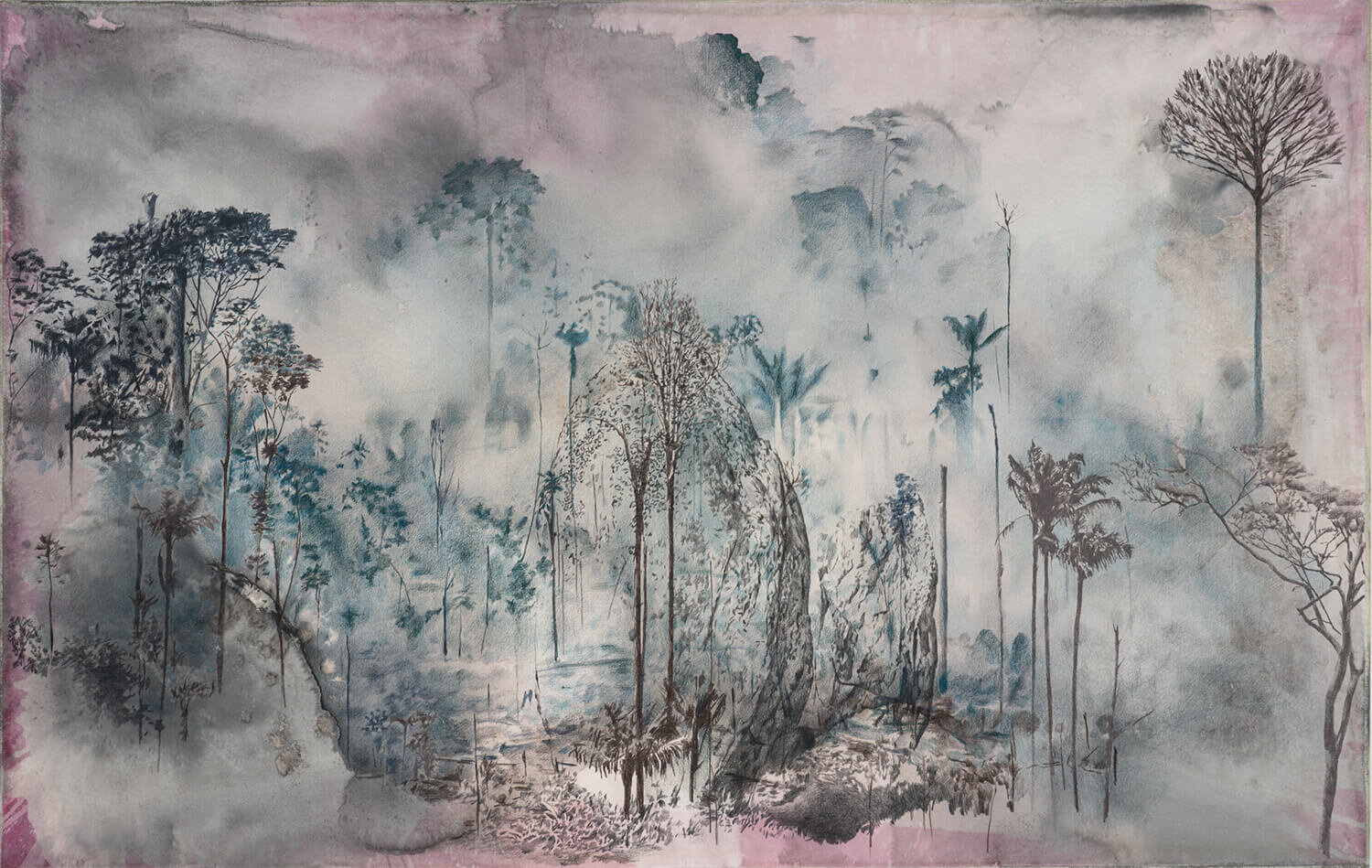
“August” from the series “The Great Atlas of Disorientation,” 2019. Pigment print on paper, from an edition of 25 prints (each signed and numbered on the front).
Dimensions are: 24.5″ x 39″
Image courtesy of: Parley, photographed by: Florian Kleinefenn
Many of Trouvé’s paintings refer back to her childhood in Africa. Living there from 7 to 15, this pivotal time span linked Trouvé’s childhood to her adolescence. Those memories reference having unlimited time. Along the same lines, freedom allowed people to interact with one another without constraints.
Trouvé’s paintings always start as a concept; specifically with “August” which is an image of the burning Amazon rainforest. In 2019, the Amazon, Siberia, and Indonesia all experiencing devastating fires. Due to the fires, those landscapes ended up in ruins. Trouvé’s work turned into an “investigation of the history of depicting landscapes” following disastrous events.
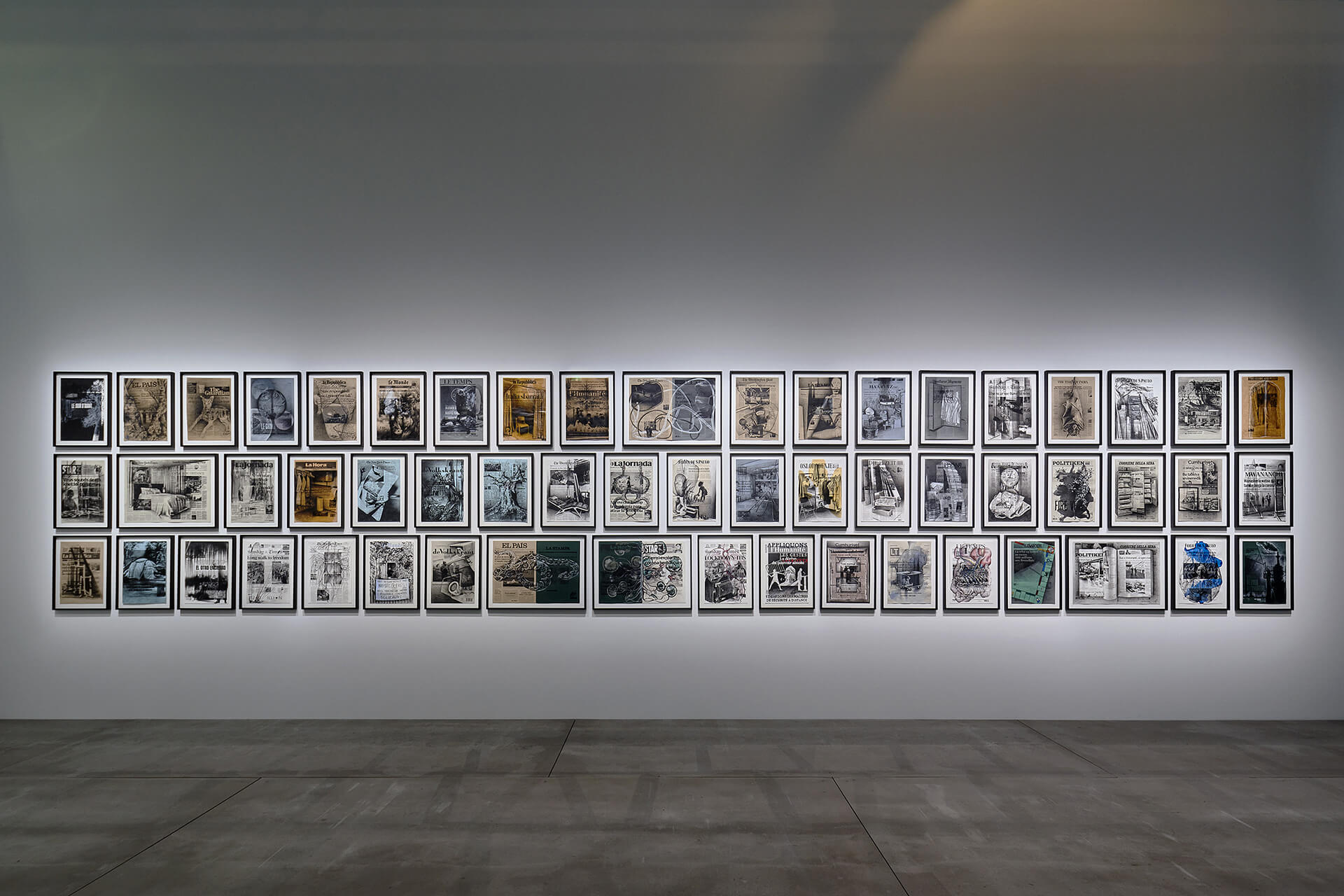
A series of newspaper front pages, “The Great Atlas of Disorientation” at Centre Pompidou.
Image courtesy of: Stir World, photographed by: Thomas Lannes
The idea behind dream-induced disorientation often infiltrates Trouvé’s work. To create this effect, the artist sprays bleach onto colored paper. The series of stains that result become the drawings’ starting point; the understanding that different perceptions of reality can coexist leads back to the dream.
The start of the pandemic allowed Trouvé to produce a unique series of drawings. “From March to May” in 2020 was made out of the front pages of a number of international newspapers. With the start of the pandemic and the ongoing uncertainty throughout, Trouvé wanted the world to come into her house… as there was virtually nowhere to go. The art happened as the drawings and front pages coexisted alongside each other.
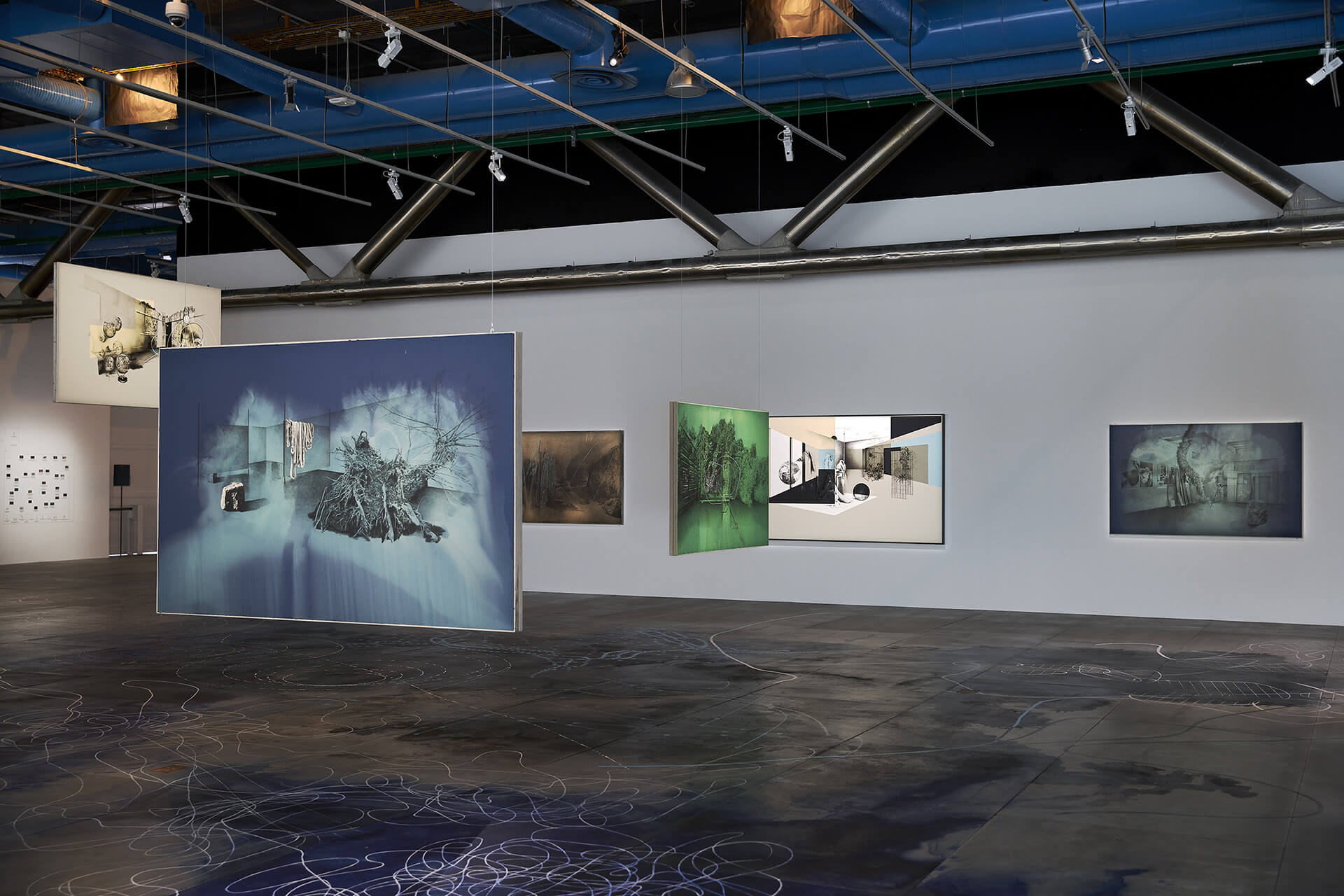
From the 2022 Centre Pompidou exhibition.
Image courtesy of: Stir World, photographed by: Thomas Lannes
Trouvé worked closely with Centre Pompidou to curate her 2022 exhibition. The expansive space was outfitted with floor-to-ceiling white curtains that turn the daylight into a soft ambiance. As the outdoor light changes throughout the day, the paintings themselves change. This dynamic effect is, in itself, a play on perception.
From her own mouth (courtesy of Gagosian), “I try to leave things open to a form of disorientation and the possibility of navigation. I am more sensitive to the physical and mental wavering that the works can produce than I am attentive to a position from which they should be seen or understood in this or that way.”
